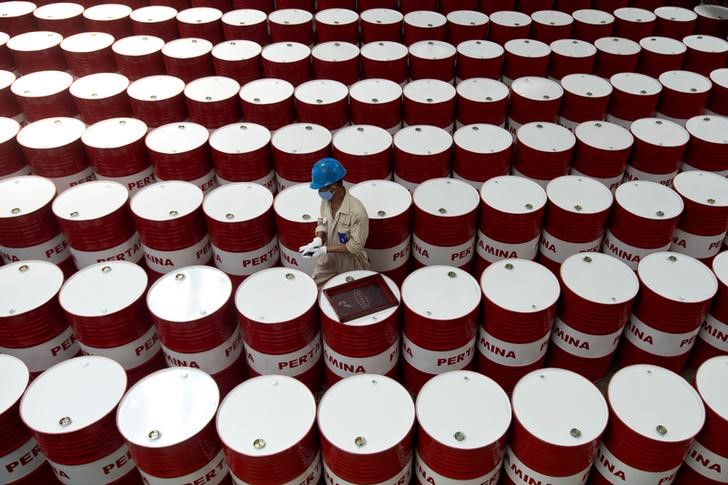This post was originally published on this site
https://i-invdn-com.akamaized.net/news/LYNXMPEE2J0AZ-ORUBS_M.jpg
West Texas Intermediate futures for June are currently the most-actively traded crude contracts in New York, and cost more than $20 a barrel. WTI for May, which fell over 300% to settle at minus $37.63, is due to expire Tuesday and has far less volume and open interest.
The nearly $60 spread between the two reflects the growing fear that those who take physical delivery of crude in the near future may not find an outlet for those barrels as refineries curb operations. A lack of demand due to coronavirus lockdowns has already led to U.S. storage space swelling with oil to its limits.
“This day of reckoning comes simply because the financial pricing has to converge to the physically traded commodity on contract expiry,” RBC Capital Markets said in a note. “In other words, the paper market and the price of the underlying commodity have to converge as physical barrels prepare to deliver.”
The situation is also displayed in the market for global benchmark Brent crude, which is trading near $26 a barrel in London. There, futures for May have already expired and prices are reflecting the status of the June contract.
“Today’s stark price move is a function of a weak physical market ravaged by the unprecedented degree of refinery run cuts,” RBC Capital Markets said. “To be clear, this is a North American storage congestion story, not a global one where we estimate some 1.5 billion barrels remaining in onshore storage capacity.”
©2020 Bloomberg L.P.


